Along With The Eggs, Are There Sets Of Eggs In The Fridge Too? And Other Key Questions...
Interview by Richard Marshall.
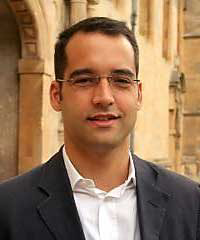
'There is more to mathematics than logic. A simple argument shows this. It is mathematically true that there is at least one object, indeed an infinity of objects (e.g. the integers), though not logically true. It is not logically true because logic per se is not committed to the existence of any objects. So mathematics cannot be logic.'
'The idea that mathematical truths are about human activities is deeply flawed. Even as basic an area as arithmetic deals with quantities human beings can’t handle—numbers greater than the number of particles in the universe for instance.'
'We should be committed to platonist mathematics. (‘Platonist mathematics’ here means roughly: mathematics understood at face value as being about abstract objects.) The argument rests on holism. Since mathematics by itself leads to no empirical predictions, it can only be confirmed in conjunction with scientific theories. What gets confirmed is mathematics-using-science and thereby mathematics itself.'
'Tell a mathematician that you’re wondering whether we know Goldbach’s Conjecture, given the extensive non-deductive evidence behind it, and she will look at you funny. ‘Don’t you realise we have no proof of it?’, she will ask. That attitude strikes me as wrong.'
'Suppose that science sanctions neither p nor not-p. Since science presumably sanctions its own verdicts, it sanctions not believing p and not believing not-p. Science therefore sanctions suspension of belief about p. Since science sanctions suspend belief about p, by trumping naturalism we should accept the claim suspend belief about p. From this it follows that we should suspend belief about p. Thus we cannot accept p or not-p, even if one of them is supported by non-scientific reasons.'
Alexander Paseau'sresearch ranges widely over mathematical philosophy. He has published on topics in philosophy of mathematics, philosophy of logic, mathematical logic, philosophical logic, formal epistemology and formal metaphysics. Here he talks about what maths is, logic and maths, fictionalism, the a priori, sets, whether maths are about human activities, empiricism about mathematics, Quine’s indispensability argument, confirmations holism, whether there were mathematical truths before humans were around to entertain their truth, whether we can know a proposition in mathematics without proof, why inductive reasoning is crucial for mathematical knowledge, David Hilbert and mathematical instrumentalism, naturalism, the subtraction argument and the possibility of an empty world, and Fitch.
3:AM:What made you become a philosopher?
Alexander Pasau:Mathematics was my teenage passion, with philosophy a burgeoning interest. Towards the end of my undergraduate degree in mathematics, I considered doing research in algebraic number theory. But I could not resist philosophy’s pull. Though I had not formally studied it at university, I had done a fair amount of independent reading and was fascinated by it. I had to try it out.
My very first tutorial in philosophy came a week or two after my final maths exams. Its purpose was to determine whether I would be allowed to on to the final year of the philosophy course. The tutorial got off to a bad start. At one point, the tutor asked me to verify that the water in a kettle across the room was lukewarm (the topic was verificationism). Not how I would verify that the water was lukewarm, but to actually get up and do so. I refused. I felt no purpose could be served by a physical demonstration and that the tutor was on a power trip. He insisted. After a few tense rounds of this, we reached an icy stalemate. Somehow, we moved on and ended up amicably discussing why A.J. Ayer hadn’t taken Gödel’s first incompleteness theorem into account in Language, Truth, and Logic. I was certain that I had failed the trial. To my astonishment, I was admitted on to the course. So began my philosophical career.
Analytic philosophy suited me perfectly. To tackle philosophical problems oneself, as opposed to assessing historical figures’ efforts, was exhilarating. Soon enough, I discovered logic, principally during my BPhil years at Oxford, where I took every logic course the Mathematical Institute had to offer and worked on set-theoretic forcing with Alex Wilkie. By the time I embarked on my PhD, I knew for sure that I wanted a career in academia.
When I explain to non-philosophers what attracts me to my philosophical niche, I say that mathematical philosophy tackles some of the deepest and most general problems. But it does so with the help of mathematical tools, which allow for precise formulations, indisputable progress, sometimes even definitive answers.
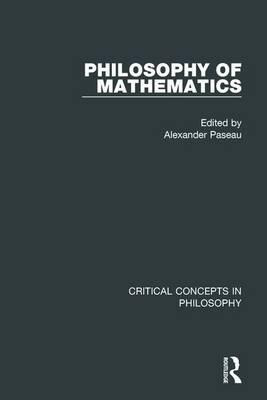
3:AM:So now you’re an expert in philosophy of mathematics. So, let’s start with a fundamental question: what is maths? Is there anything to the sceptic’s challenge that the link between mathematical facts and the justifications we give for mathematical beliefs are only a little better than lucky guesses?
AP:It’s not easy to define mathematics. There’s the ostensive definition: mathematics is what mathematicians do, in seminars, in lectures, when writing books and articles, etc. But that’s hardly informative.
More informative definitions are more controversial. The one I would offer is that mathematics is the study of abstract structure. Although it conflicts with some philosophical views, the definition seems to capture the subject’s essence.
There are different ways to respond to the mathematical sceptic, depending on how exactly they formulate their challenge. It is very hard – perhaps impossible – to respond to the sceptic if she doesn’t grant you the truth of mathematics. This sort of predicament is common in other areas of philosophy.
Suppose though that the sceptic makes some concessions. She grants that our mathematical beliefs are by-and-large true. Our method of generating them, to a first approximation, is to deduce them from axioms we believe. This method cannot but have generated true beliefs. Moreover, these beliefs themselves are true under any circumstances whatsoever. As such, they are far from lucky guesses. Developed in more detail, this line of response promises to silence this particular sceptic.
3:AM:Is logical knowledge alone enough to account for all we know when we know mathematics, as fictionalists argue? Is this the best way to argue for a kind of a priori knowledge of mathematical objects?
AP:There is more to mathematics than logic. A simple argument shows this. It is mathematically true that there is at least one object, indeed an infinity of objects (e.g. the integers), though not logically true. It is not logically true because logic per se is not committed to the existence of any objects. So mathematics cannot be logic.
A common fictionalist response to this argument is to say that there are no mathematical truths (or no non-trivial ones at any rate). The reason is that there are no mathematical objects. The challenge is then to account for mathematics without positing a single mathematical object. To my mind, no fictionalist has ever risen to the challenge. In any case, fictionalists about mathematics cannot appeal to logic as it stands to account for what we know when we know mathematics. For our best—and standard—account of logic is mathematical through and through. It invokes models, which are mathematical objects.
Mathematics and logic are prime examples of a priori knowledge, if any such exists. Frege and Russell tried to reduce mathematical to logical knowledge without saying much about the latter. You could argue that, had they succeeded, they would have reduced two mysteries to one, halving philosophical labour. Instead of having to account for both mathematical and logical knowledge, we need only account for the latter. It’s likely, however, that our best account of the a priori—or the alleged a priori—will be general and uniform. In particular, the correct account of logical knowledge is likely to be the same as that of mathematical knowledge, mutatis mutandis. From this perspective, a logicism that does not articulate the nature of logical knowledge can hardly be deemed a success.
3:AM:How plausible do you find the claim that along with eggs in the fridge there are sets of eggs in the fridge, and sets of sets of eggs in the fridge, etc? Or that mathematical truths aren’t about abstracts at all, but are shorthand for, e.g., human collecting and segregating activities?
AP:Let’s take the second question first. The idea that mathematical truths are about human activities is deeply flawed. Even as basic an area as arithmetic deals with quantities human beings can’t handle—numbers greater than the number of particles in the universe for instance. You could say that mathematical truths are shorthand for idealised human activities. But the idealisation involved leaves our actual abilities far behind. And the more abstract the mathematics, the more strained it is to interpret it in such parochial terms.
Now for the eggs in the fridge. Call the set whose members are all and only the eggs E. E’s existence follows from standard versions of applied set theory (set theory with non-set elements—urelements). Where is E located? There seem to be two answers: nowhere, so E is abstract; or where E’s members are located—in the fridge—so E is concrete. I would favour the first answer. But tentatively; to my knowledge, there are no decisive arguments either way. In any case, the relevance of the metaphysics and epistemology of egg collections to the philosophy of pure mathematics remains unclear.
3:AM:Why might Quine’s holism help the empiricist, and why do you find this claim problematic if it’s meant to show the possibility of human knowledge of abstract objects?
AP:Empiricism about mathematics can be understood as the claim that mathematics is justified empirically. (Historically, some empiricists have also argued that mathematical knowledge, though not empirical, is in some sense easy knowledge, and therefore not a counterexample to a more general empiricism.) Quine’s key move was to decouple this epistemological claim from its traditional ontological correlate, that mathematics is about the physical world. Current thinking is that empiricists must follow Quine here. The problems faced by John Stuart Mill’s ontological empiricism, by the collecting-and-segregating views you mentioned in your previous question and by other pre-Quinean forms of empiricism all point in the same direction. They seem to mandate some form of holism combined with the ontological thesis that mathematical objects are abstract.
Quine’s indispensability argument rests on confirmational holism. One way to cast the argument’s two premises is: (1) platonist mathematics is an indispensable part of our best scientific theories, and (2) we should be committed to the indispensable parts of our best scientific theories. The conclusion is that we should be committed to platonist mathematics. (‘Platonist mathematics’ here means roughly: mathematics understood at face value as being about abstract objects.) The argument rests on holism. Since mathematics by itself leads to no empirical predictions, it can only be confirmed in conjunction with scientific theories. What gets confirmed is mathematics-using-science and thereby mathematics itself.
There are various degrees of confirmational holism, though. A hotly-debated topic in current philosophy of mathematics is how much holism is required for the indispensability argument to succeed. If one insists on empiricism about justification and on taking mathematics to be about abstract objects, some degree of holism seems mandatory, since it is hardly disputable that mathematics on its own has no empirical content.
Although in many ways sympathetic to empiricism, I recognise that it faces several difficulties. An example is the challenge I pressed in ‘Scientific Platonism’, an essay your question is perhaps alluding to. Suppose you think there is empirical support for the truth of a mathematical claim, be it ‘2 + 3 = 5’ or Fermat’s Last Theorem. (Fermat’s Last Theorem is: if positive integers a, b, c and n are such that an + bn = cn then n = 1 or 2.) Must you then think that there is empirical support for the existence of abstract numbers? Not necessarily; there is a gap between the two claims. It’s one thing for science to justify a mathematical statement, and another for it to justify a platonist reading of the same statement. So an empirical account of mathematical justification does not necessarily lead to platonism.

3:AM:Were there mathematical truths before humans were around to entertain their truth? In other words, are mathematicians discovering or inventing? Do psychology and neuroscience help us answer this at all?
AP:Yes there were, because mathematical truth is not tensed. Mathematicians discover mathematical truths; they don’t make them up. No tenable philosophy of mathematics can claim otherwise. That conclusion follows from philosophical arguments. These arguments, though empirically informed, don’t turn on any detailed findings in psychology or neuroscience. They were available a century ago, when psychology was getting going and neuroscience as we know it did not exist. One of these arguments, on a thumbnail, is that there would be no way to account for applications if mathematics were invented.
But beware: do not equate ‘invented’ with ‘not pre-dating human beings’. The position that (a) some claims depend on features of human beings for their truth, but also that (b) these same claims would have been true a billion years ago or if human beings had never existed, seems consistent. One can consistently—even if incorrectly—maintain that mathematical truths are mental constructs, but that whenever we make judgements about any situation, actual or historical or counterfactual, we impose these constructs on it. If so, we would still judge that 1 + 1 equalled 2 in the pre-human past or in a non-human counterfactual scenario.
The analogous point is familiar from discussions of certain kinds of ethical anti-realism. If moral facts are projections of our attitudes, these attitudes will be projected onto imagined scenarios in which we don’t exist. That we ‘invent’ morality in some sense is consistent with making moral judgements about situations not involving us.
3:AM:Can we know a proposition in mathematics without proof? Can you sketch your arguments?
AP:Most mathematicians would say that we cannot. I disagree, however. I say that we can know a mathematical truth without ever having proved it. For example, we can know that a large number N is prime on the basis of probabilistic tests that tell us that the probability of N’s not being prime is minuscule.
The first of two suggestive arguments to this effect is that proofs do not seem to possess any knowledge-conferring property that non-proofs lack. (Other than question-begging properties, I mean.) Also, no vaguely plausible account of knowledge allows proofs to confer knowledge while simultaneously depriving non-deductive arguments from doing so.
A third argument rests on the nature of axioms. Some of the evidence for axioms, say those of set theory, is non-deductive—based on the plausibility of their consequences rather than their intrinsic plausibility. Does it not follow that our knowledge of theorems proved on the basis of such axioms is also non-deductive?
Finally, you can exploit physical knowledge to gain knowledge of geometrical, arithmetical, etc. facts. The way to do so is to reverse the direction usually adopted in applying mathematics. Take a simple example. By carefully counting the chocolates in a rectangular box with 11 rows and 12 columns, you can empirically come to know that 11 x 12 = 132. The interesting thing is that there are many more such cases, and many advanced ones.
In the absence of more detailed considerations, whether we already know famous unproven mathematical conjectures, such as the Goldbach Conjecture or the Riemann Hypothesis, remains unclear. But even to ask that question would be little short of a heresy in mathematics. Tell a mathematician that you’re wondering whether we know Goldbach’s Conjecture, given the extensive non-deductive evidence behind it, and she will look at you funny. ‘Don’t you realise we have no proof of it?’, she will ask. That attitude strikes me as wrong, for the reasons just sketched.
3:AM:Is it your view that inductive reasoning is important for mathematical knowledge? Is this why you’ve looked at the ‘hard problem’ of induction? Can you sketch what this hard problem is and how you dispute the idea of a recent attempt to solve it, which claimed that the problem has a deductive solution?
AP:Absolutely, inductive reasoning is crucial for mathematical knowledge—see my answer to the previous question. But my work on the hard problem of induction was independent of such concerns. In 2008, two mathematicians, Christopher Hardin and Alan Taylor, proved a theorem about predictive functions. Their theorem is pregnant with philosophical implications. Curiously, very few philosophers have tried to tease out these implications, so I’m pleased you asked.
By the hard problem of induction, I take it you mean the task of persuading an inductive sceptic that inductive inference to new conclusions is truth-conducive. Hume’s classic discussion can be read as an argument that the hard problem is unsolvable. How does the Hardin-Taylor theorem relate to the hard problem? In a nutshell, the theorem states that a function exists with the following property: whatever world we live in, the function correctly predicts the world’s present state from its previous states at all times apart from a well-ordered subset. On the usual model of time, a well-ordered subset is small relative to the set of all times. The predictive function is therefore almost always correct. The theorem thus appears to solve the hard problem of induction.
I take the theorem to be a genuine philosophical advance. Perhaps the main reason it fails to solve the hard problem, however, is that it takes the structure of time—in particular future time—as given. Even if time has so far assumed the structure of the real numbers (say), the inductive sceptic has no grounds for thinking this state of affairs will continue into the future. Perhaps the set of future times won’t be isomorphic to a real number interval. It follows that this sceptic cannot be persuaded of the existence of a truth-conducive function. (This is no criticism of either Hardin or Taylor, by the way, as they did not apply their mathematical result to the hard problem of induction.)
This objection is a restatement of Hume’s classic insight in a new context. As Hume pointed out, to assume that the future will resemble the past begs the question against the sceptic. Hume’s circularity objection is the besetting problem for purported solutions to the hard problem. More positively, though, the theorem takes a great step towards solving an easier problem. This is to persuade an inductive sceptic that there is a mostly correct inductive function if future time has a particular structure.
3:AM:You’ve defended mathematical instrumentalism against Gödel’s second incompleteness theorem, which claims that you can’t prove the consistency of all maths from within elementary maths. Can you say what the issue is here and how you save at least some versions of instrumentalism?
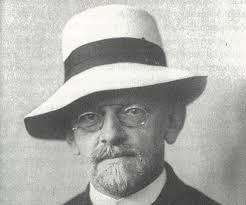
AP:David Hilbert (1862–1943) had the idea of applying instrumentalism in the philosophy of science to mathematics. Instrumentalism about science is roughly the idea that scientific theories are mere tools for organising and predicting observational statements. Taking his cue from this, Hilbert construed the abstract parts of mathematics as an instrument for proving truths in its elementary part. (In an analogy with complex numbers, he called the abstract part ‘ideal’ and the elementary part ‘real’.) His famous programme then involved showing, using only elementary reasoning, that the abstract part is consonant with the real part. What exactly the requirement of consonance is is a moot point; but at the very least, abstract mathematics is required to be consistent. The programme thus succeeds only if one can prove, using elementary reasoning, that the abstract portion of mathematics is consistent.
Hilbert formulated and developed these ideas in the 1920s. No sooner had the next decade got under way than Gödel established that one cannot prove the consistency of abstract mathematics within elementary mathematics. The result is a corollary of his famous second incompleteness theorem. The conclusion many philosophers and others drew was that instrumentalism about mathematics is doomed.
Although not an instrumentalist myself, it seems to me that such a pessimistic conclusion does not follow. Gödel’s second incompleteness theorem sinks Hilbert’s specific version of instrumentalism, though not the position as a whole. What was distinctive about Hilbert’s version was his insistence that the consistency of abstract mathematics be proved within elementary mathematics. But there is no deep philosophical reason for an instrumentalist to insist on proof. Non-deductive arguments can give us sufficient evidence to believe that abstract mathematics is indeed consistent. (Compare instrumentalism in the philosophy of science, which does not insist on proof.) That was my argument in ‘Hilbert, Gödel, Instrumentalism and Inductive Evidence’.
Some mathematicians and Hilbert scholars have taken exception to this line of argument, because they assimilate Hilbert’s version of instrumentalism with instrumentalism tout court. Yet the instrumentalism I suggest survives Gödel’s theorem is patently distinct from Hilbert’s own. The real question about instrumentalism, it seems to me, is different. Is there a well-motivated, philosophically significant, separation of mathematics into an elementary and an abstract portion?
3:AM:You’ve looked at different kinds of naturalism. In one you looked at ‘trumping’ naturalism and ‘biconditional’ naturalism and argued against the claim that trumping naturalism collapses into biconditional. Can you sketch your thinking here and say what’s at stake?
AP:The trumping naturalist holds that if science claims that p then you should believe that p. For example, according to well-corroborated physical theory, the universe is about 14 billion years old, so according to the trumping naturalist we had better believe it, whatever (say) any particular religion maintains. The trumping naturalist allows, though, that we may believe that p even if p is not sanctioned by science, as long as p’s negation isn’t either. The claim that God exists might be an example. The biconditional naturalist, in contrast, thinks that we should believe that p if and only if science claims that p. So in the case of God’s existence, if science remains agnostic, so should we. It’s crucial to distinguish these two forms of naturalism, since science speaks only to a limited range of questions.
In my ‘A Puzzle about Naturalism’, I examined an argument that trumping naturalism collapses into the prima facie stronger biconditional naturalism. For suppose that science sanctions neither p nor not-p. Since science presumably sanctions its own verdicts, it sanctions not believing p and not believing not-p. Science therefore sanctions suspension of belief about p. Since science sanctions suspend belief about p, by trumping naturalism we should accept the claim suspend belief about p. From this it follows that we should suspend belief about p. Thus we cannot accept p or not-p, even if one of them is supported by non-scientific reasons. Thus trumping naturalism entails biconditional naturalism; it is not a stable weaker position. My article identified the flaw in this reasoning.
PS The name ‘trumping naturalism’ was chosen long before the political ascendancy of you-know-who.
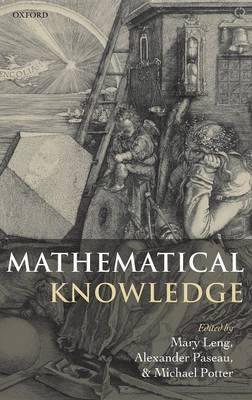
3:AM:Of the three main species of naturalism typically found in philosophy—methodological, ontological and epistemological—which of these three fit best, if at all, the philosophy of mathematics? And are you a mathematical naturalist? Finally, Tim Williamsonhas argued that naturalism runs aground with mathematical knowledge which seems not to be naturalistic, at least in some senses. So he’s saying that not all knowledge, in the broadest sense, has to be scientific knowledge, in the broadest sense. Is he right?
AP:I would say that the first, methodological naturalism, is the most prevalent in philosophy of mathematics. It states that the only authoritative standards, in philosophy and elsewhere, are scientific. Of course, this is an orientation rather than a precise statement. As with slogans more generally, everything turns on how it is spelt out. The trumping version mentioned in the previous answer makes the idea a bit more precise. A key question, stressed by Williamsonand many others, is what exactly ‘science’, as understood by the methodological naturalist, is. Does it consist of the natural sciences, or the natural sciences plus mathematics, or something else altogether? In the context of mathematics, methodological naturalism sometimes takes the standards of mathematics itself to be autonomous from those of the natural sciences and the primary source of justification. We might call this form of methodological naturalism ‘mathematics only’.
If pressed I would probably self-characterise as a methodological naturalist. I’m not sure I could exactly define what epistemic standards I adhere to, at least not in a few words. But I can certainly give you an example of what I mean. Goodman and Quine (in his pre-naturalist phase) once began an article by declaring that the basis for their nominalism was a fundamental philosophical intuition irreducible to scientific grounds. (The article in question was ‘Steps Toward a Constructive Nominalism’.) Naturalists reject appeal to such standards, as would I. Naturalists also reject appeal to arguments that draw on theology, common sense, astrology and the like, when these clash with what they see as firm scientific findings.
To be credible, naturalism had better be compatible not just with the possibility of mathematical knowledge, but also with its actuality. Williamson and others have pointed out that the mathematical method seems different from the scientific method. The latter involves testing hypotheses by observation and controlled experiment, whereas the former involves proof. Although these differences must of course be acknowledged, it would be more accurate to see the mathematical method as an extreme case of the scientific one. Mathematics is a quasi-autonomous domain which beyond a basic level pays little heed to observable consequences. The crucial words in that last sentence are ‘quasi’ and ‘little’; mathematics, as I see it, is a vast archipelago within the scientific continent, not an island off it. I can’t spell out the view here (you’ll have to read my book What Is A Number? when it comes out), but it ties in with my answers to some of your earlier questions about empiricism and inductive evidence. It also helps avoid the ‘mathematics only’ form of methodological naturalism, which is hard to justify without opening the floodgates for ‘astrology only’, ‘theology only’ etc. naturalisms.
3:AM:Does the subtraction argument show that there is an empty world—a possible world without concrete objects?
AP:Early in my career, I wrote a couple of articles criticising the subtraction argument. (The first was entitled ‘Why the Subtraction Argument Doesn’t Add Up’ and the second ‘The Subtraction Argument(s)’; I can’t help but think that the main reason the former has received so much more attention than the latter is because of its playful title.) Both tried to clear up some confusions in early presentations of the argument. The reading of a premise that rendered the original argument valid was implausible, while its more plausible reading rendered the argument question-begging.
I still don’t find the idea behind the subtraction argument particularly plausible. Here’s the idea: if there’s a possible world with N objects, then there’s a possible world with N − 1 objects, for any positive number N. Assuming that there’s a possible world with a finite number of objects, it follows that there’s an empty world. To see what goes wrong here, think back to when mathematicians recognised the existence of positive integers but not of 0. An analogous subtraction argument for the existence of 0 could have been given at the time, based on the premise that any number has a predecessor. Faced with this argument, mathematicians would have rightly objected that the crucial question had been begged. Any positive integer other than 1 has a predecessor; yet whether that’s also true of 1 is precisely what is at stake. Roughly the same is true of the subtraction argument. Of course, the number 0 does exist, as we now know. The point though is that the argument for its existence has to be more sophisticated than an arithmetical ‘subtraction argument’.
I’m not saying that there isn’t a possible world with no concrete objects. I just can’t see how the subtraction argument is a suasive argument that there is.
3:AM:And is Fitch right to argue that if all truths are knowable then all truths are known? On the face of it, it seems implausible—after all, it seems knowable that there have been n number of heartbeats since the big bang, but no one knows the number.
AP:Fitch argued that if all truths are knowable then all truths are known. Quite clearly, not all truths are known, so not all truths are knowable. The argument thus functions as a reductio ad absurdum of the idea that all truths are knowable. It does not follow from Fitch’s argument that any knowable truth, such as in your example, is known. Fitch’s claim
If all truths are knowable then all truths are known
is a weaker statement than
If a truth is knowable then it is known.
What I explored in my paper ‘Fitch’s Argument and Typing Knowledge’ was the idea that the operator ‘It is known that’ or alternatively the predicate ‘is known’ must be typed. The analogy here is with an old attempted solution to the Liar Paradox, which types the predicate ‘is true’, so that ‘is true_0’ applies to non-semantic claims, ‘is true_1’ applies to claims involving the ‘is true_0’ predicate, and so on. The challenge here was twofold. First, technical: the typing response to Fitch’s argument must develop a modal typed epistemic logic. Second, philosophical: the response must be philosophically justified. It seemed to me that before we grant the soundness of Fitch’s argument, this sort of approach has to be carefully explored.
3:AM:And finally, are there five books you could recommend to us that will take us further into your philosophical world?
AP:
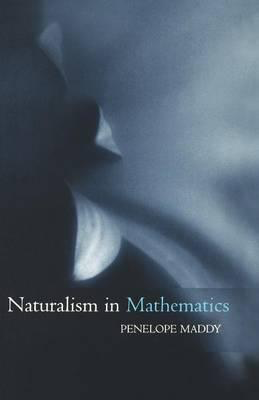
Penelope Maddy’s Naturalism in Mathematics,
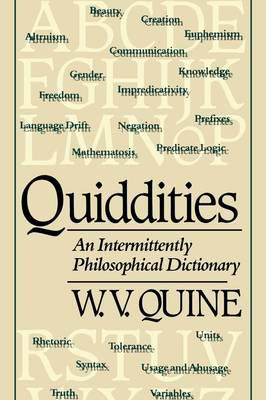
W.V.Quine’s Quiddities¸
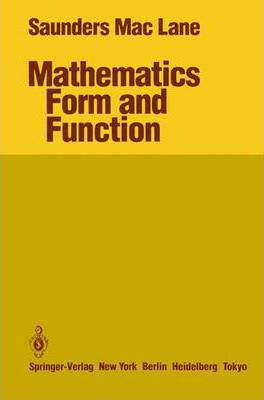
Saunders MacLane’s Mathematics Form and Function,
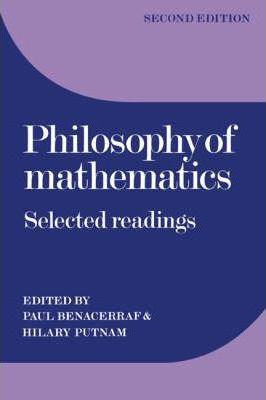
the second edition of Paul Benacerraf and Hilary Putnam’s Philosophy of Mathematics,
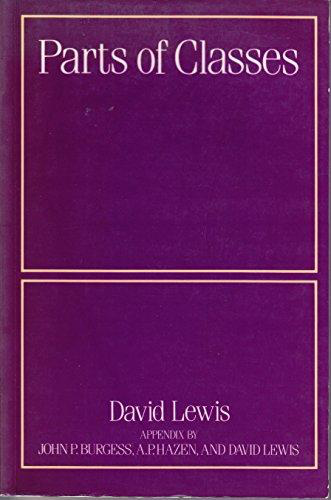
and David Lewis’ Parts of Classes.
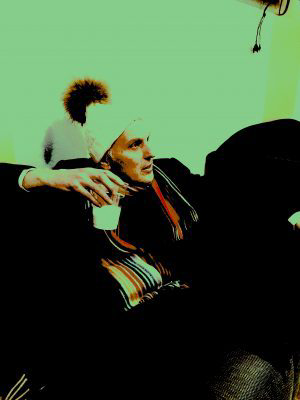
ABOUT THE INTERVIEWER
Richard Marshallis still biding his time.
Buy his new book hereor his first book hereto keep him biding!